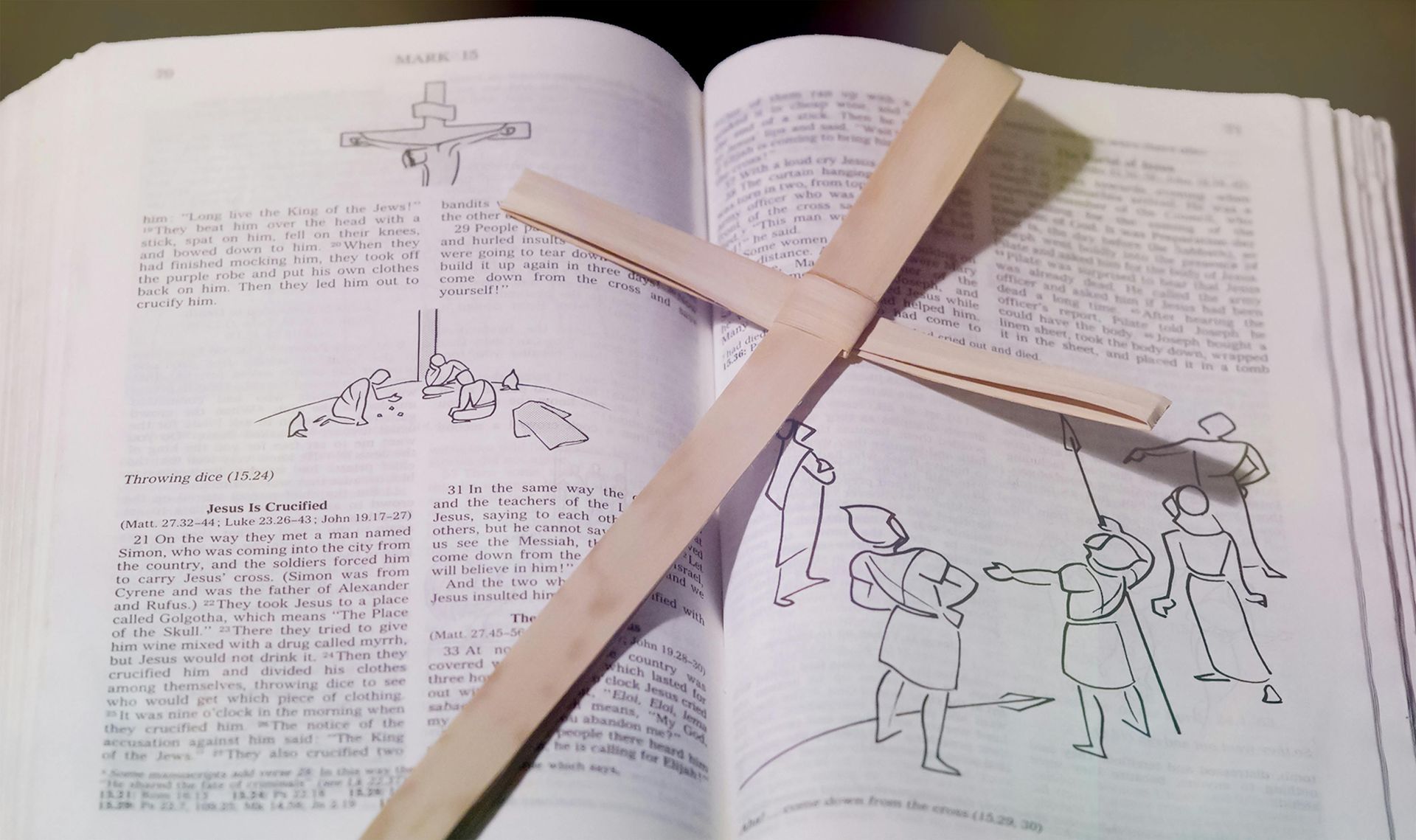Palm Sunday, Year C

I have long thought that the Church gives us the two Gospel passages we hear today — the account of Jesus’ triumphant entry into Jerusalem and the account of his Passion and death — for very practical reasons: this is the last Sunday before Easter when we will celebrate Christ’s Resurrection and not everyone is able to attend and celebrate the Triduum liturgies during Holy Week. Therefore, the Church places these two critical Gospel passages together so that we hear and experience them in a regular Sunday Mass setting — literally, to ‘fit them in’ before Easter.
But there is another equally, if not more, important reason we are to experience these Gospel passages together. And I honestly don’t know if the Church intends this reason or not, but I believe the Holy Spirit intends it. These two Gospel passages remind us as much as any passage that Jesus Christ, while fully Divine, is also fully human. He is like us in all manner except one, in committing sin. He therefore shares with us the experience of the full range of our humanity. In these two Gospel passages we experience Christ moving from triumph to tragedy, from soaring to suffering: the triumphant, soaring entry into Jerusalem and the suffering and tragedy of His Passion and crucifixion.
Christ’s human experience is also our human experience, for do not we all experience triumph and tragedy, soaring and suffering? Therefore, we do not have a God and Savior who cannot sympathize with our human experience, but rather one who shares it with us! And we have a God and Savior who not only soared and suffered for us, but soars and suffers with us. Not just two thousand years ago, but right here, right now, in every minute of our lives. For what did Jesus promise? “I am with you always, until the end of time.” (Mt 28:20)
When we soar and triumph, Jesus is with us, by our side. And when we suffer and experience tragedy, especially, Jesus is with us, by our side. We are encouraged to give thanks to God in our triumphs and soaring. And we are invited to unite our suffering with Christ’s suffering and offer it up for whatever or whomever is in need. Christ’s suffering was not pointless, and united to His, neither is ours. We offer it up, trust, and hope.
Sisters and brothers, that hope comes from our knowledge of the rest of the Gospel story that we will experience with Christ: that His triumph and tragedy, His soaring and suffering does not end in death, but in the glory of Easter Resurrection.



